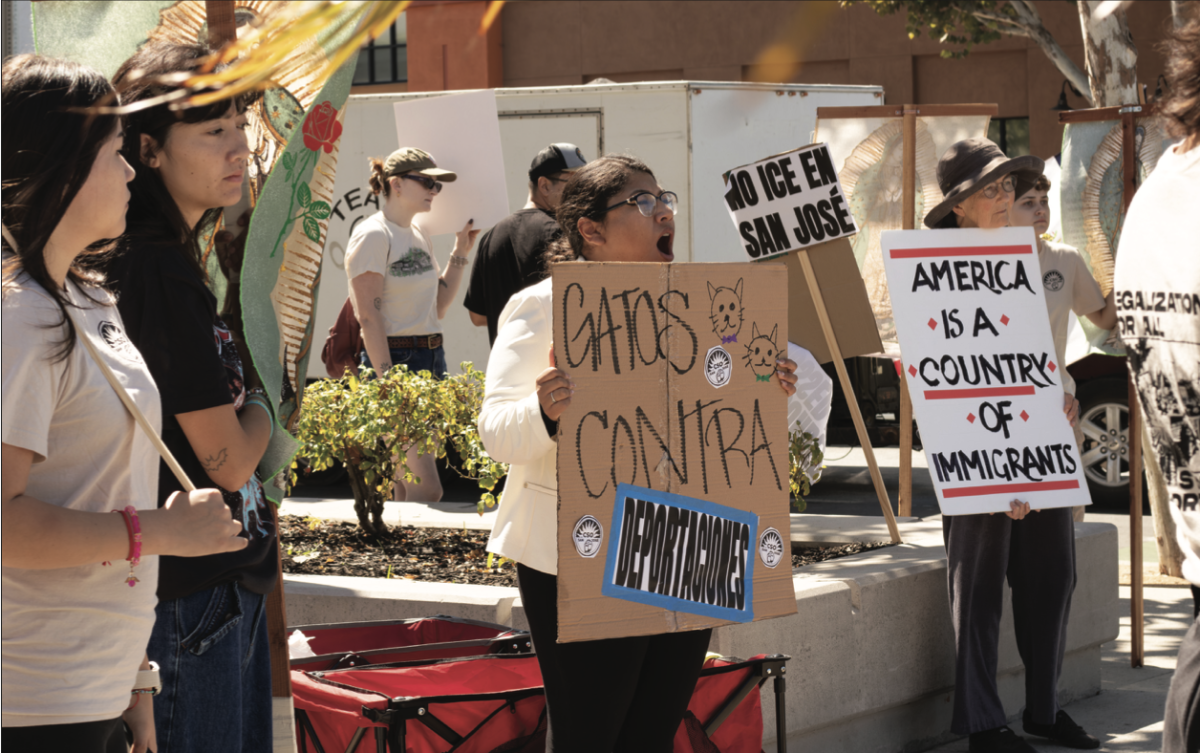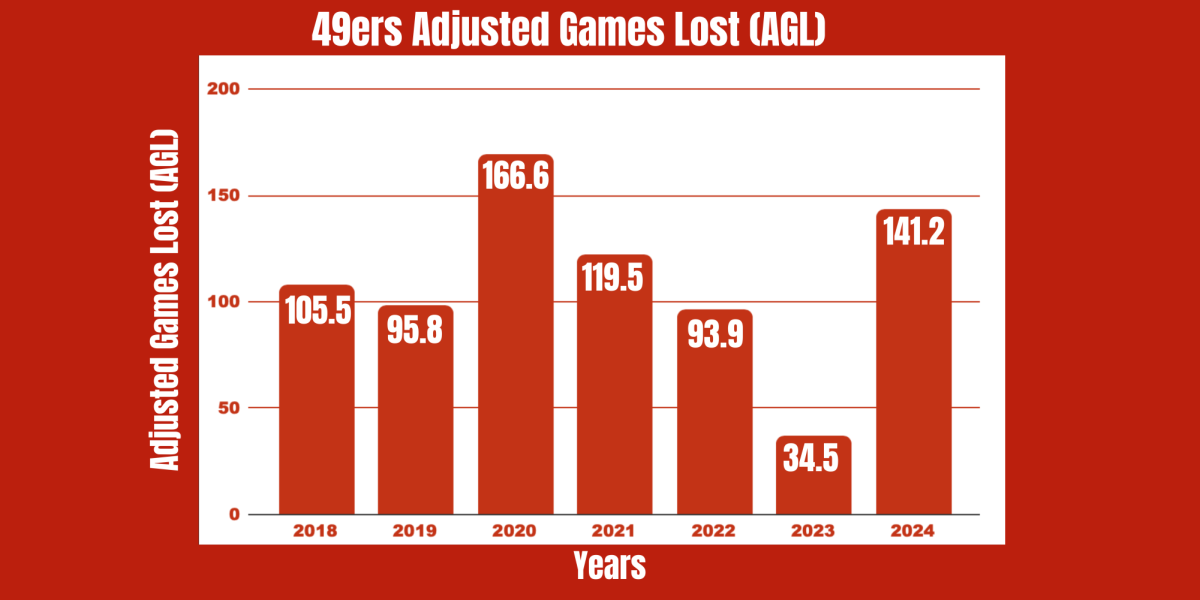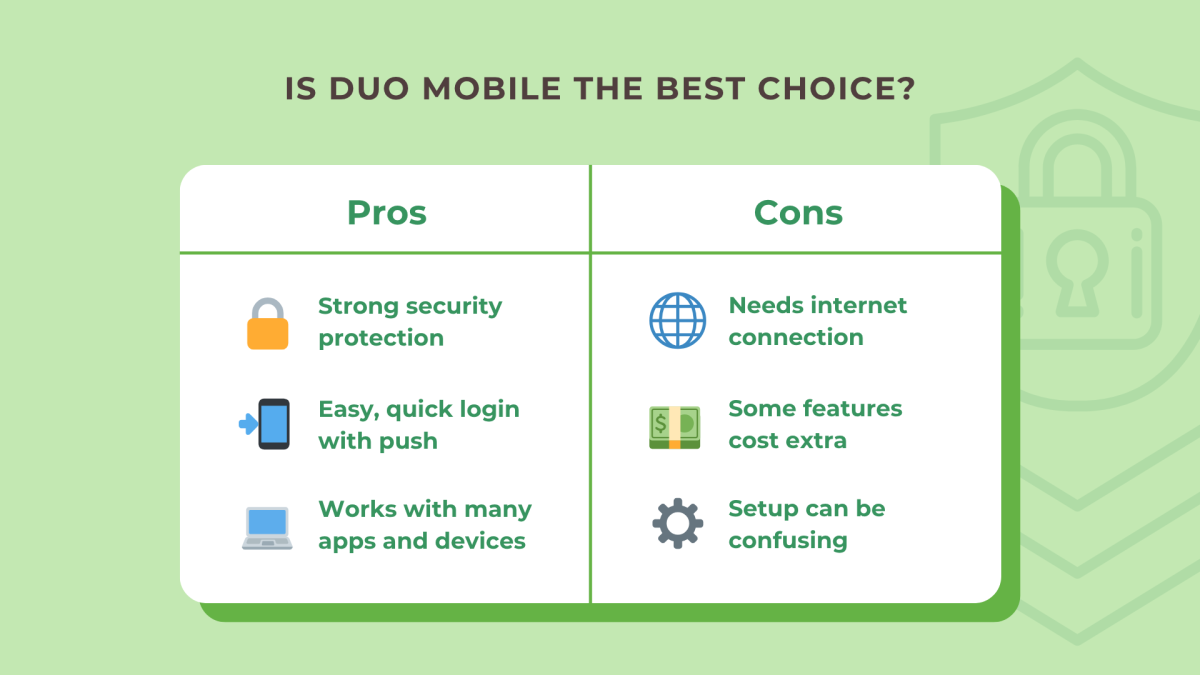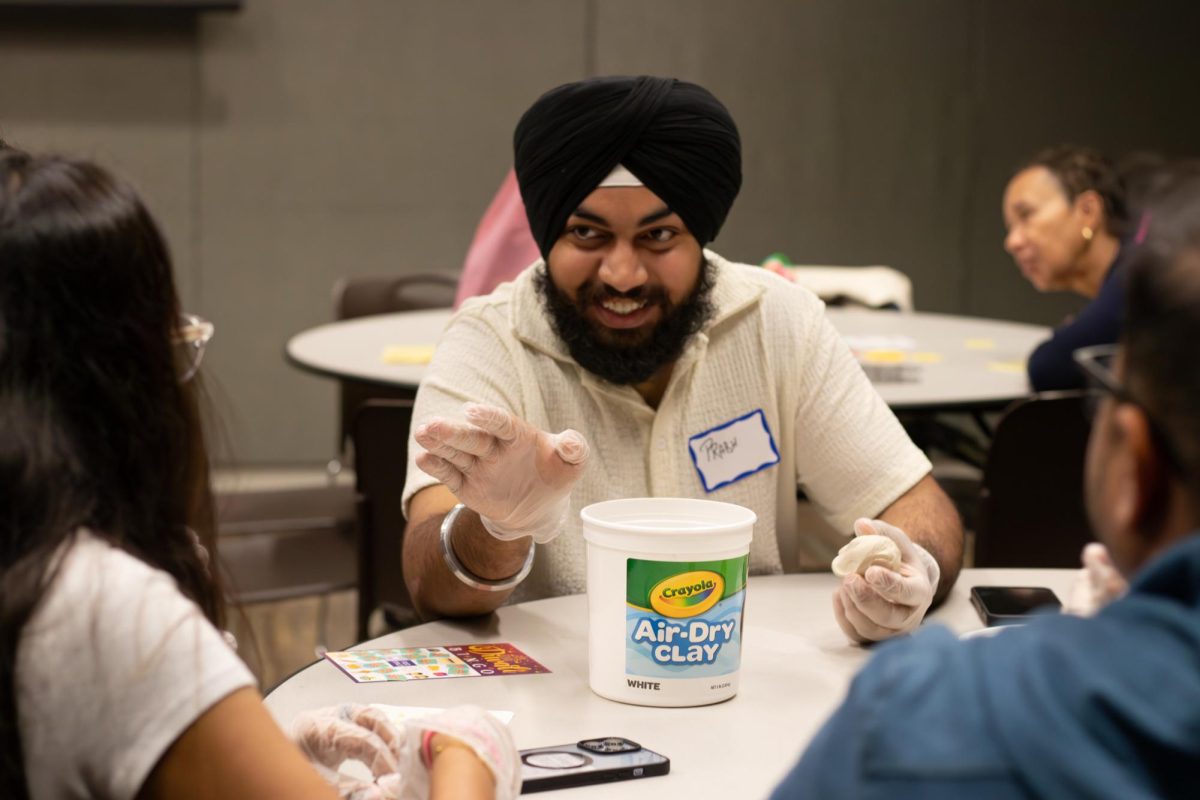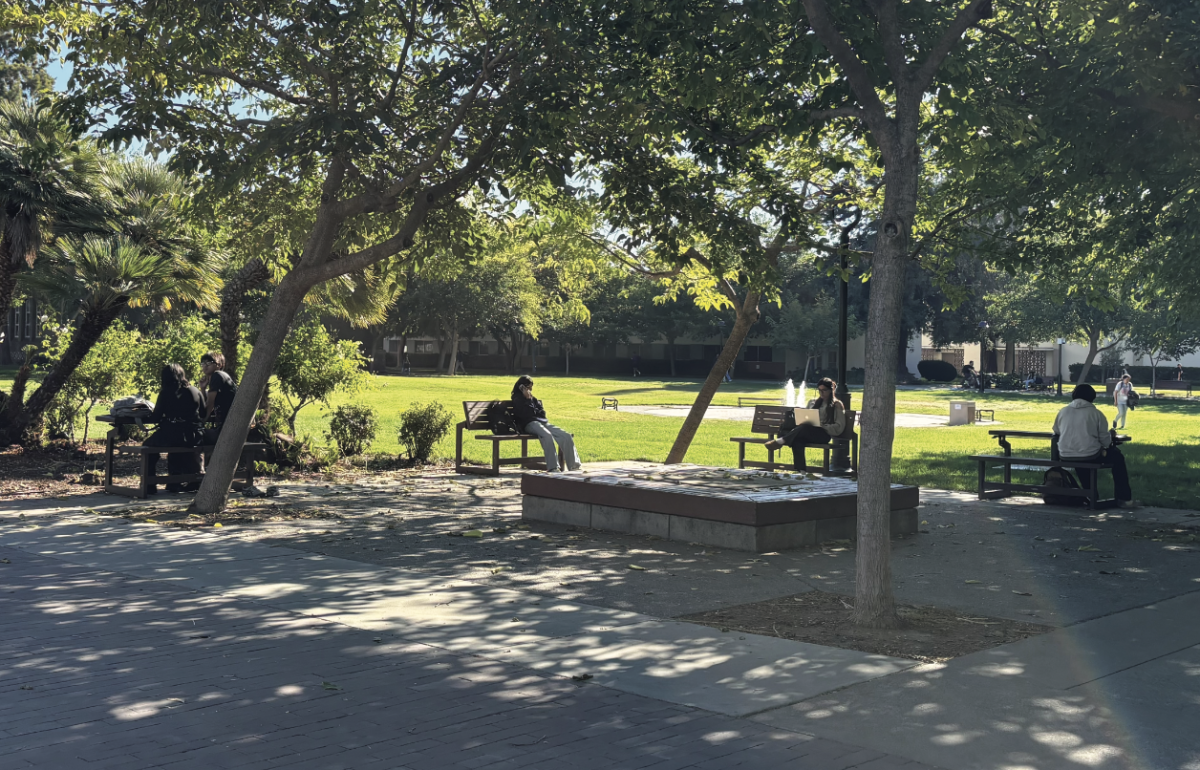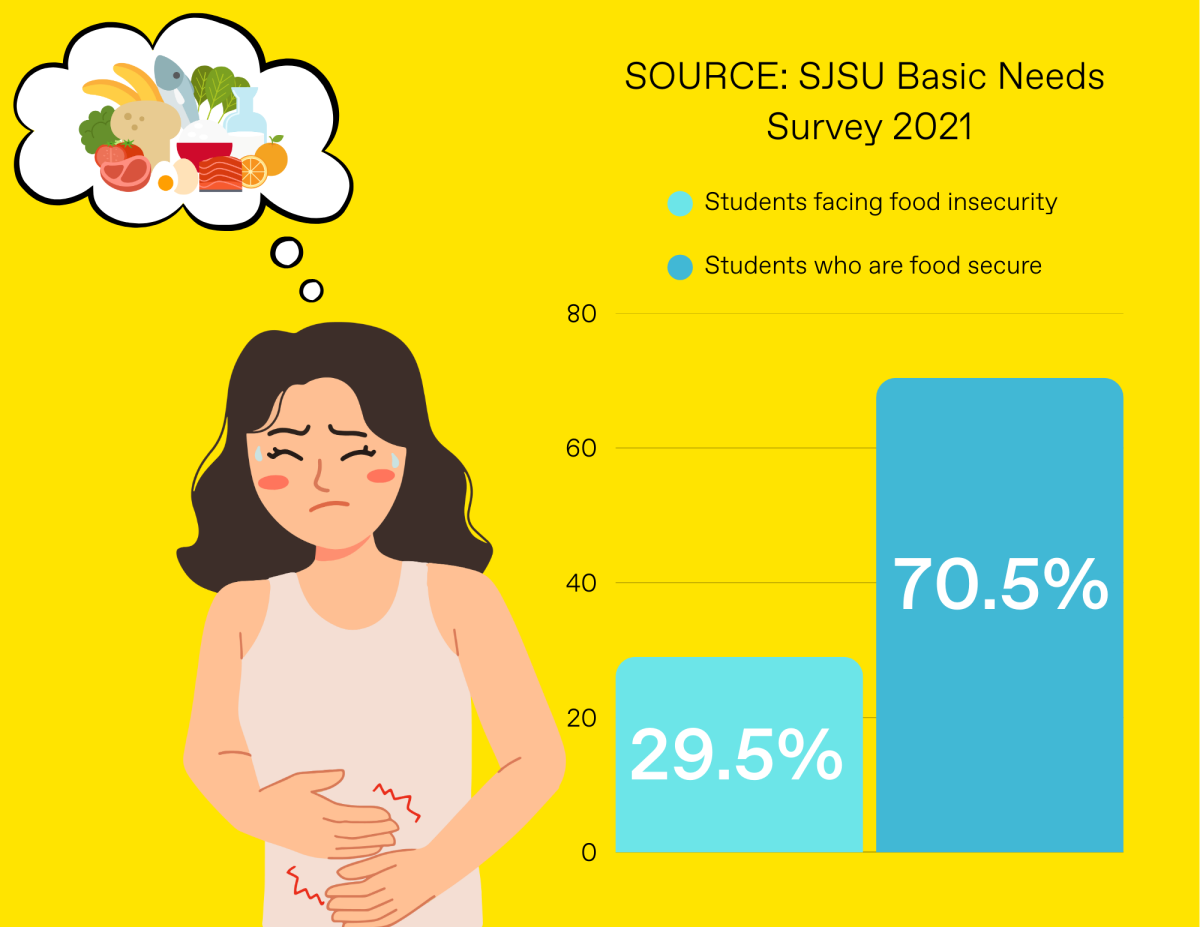Students at San José State face food insecurity resulting in many to use the resources SJSU provides.
Brenjielyn Cuneta, an SJSU Cares basic needs coordinator for the Spartan Food Pantry, sees the cost of food is staying constant or increasing.
“The economic changes, especially being in Silicon Valley, can be very challenging for anyone, especially for college students,” Cuneta said.
It was reported that 29.6% percent of SJSU students experience food insecurity, according to a 2021 basic needs survey by SJSU Cares.
Jacqueline Bergman, assistant professor for the SJSU department of nutrition, food science and packaging, said that rising food prices compounded with tariffs create hurdles for students.
“A Federal Reserve Bank of Atlanta report projected tariffs could drive consumer prices up by 2.6% and that extra cost hits low-income households hardest, because food takes up a bigger share of their budget,” Bergman said. “ For students, this means making heartbreaking choices between groceries, rent, and tuition.”
Along with high inflation affecting the costs of groceries, the costs of meat, especially beef, have gone up because of droughts, shrinking herds and the rise of imported beef, according to a July 21 article from CNN Business.
Cuneta said that for students going to class with an empty stomach, this may pull them back from learning and performing at their best capacity
Susan Chen, an assistant professor for the SJSU department of nutrition, food science and packaging, said food and nutrition tie directly to academics.
“Being well fed and nourished generally leads to students getting higher GPAs and also the ability to engage more with their classes, as well as other academic pursuits,” Chen said.
Students who have healthy eating habits and have a balanced diet helps support better cognitive function and overall well-being needed for their professional performances and future career trajectories, according to a June 6, 2024 study done by the American Journal of Biomedical Science and Research.
“Food insecurity is not a fringe issue—it’s something many of our students live with every day,” Bergman said.
Established in 2019, the Spartan Food Pantry is a food assistance program offering non-perishable goods, fresh produce and refrigerated items to students, according to a March 26, 2020 article from SJSU News.
“As the economic challenges rise, so does our need for more assistance in order to support the students who are having a hard time maintaining their basic needs, responding to their duties and performing their best in their academics,” Cuneta said. “We continuously seek assistance to ensure that our shelves are full and that we have enough for everyone.”
In the last academic year, 3,259 unique visitors were using the food pantry and had experienced a total of 33,681 visits, according to the 2024-2025 SJSU Cares Annual Report.
Another resource for students to help afford food is CalFresh (SNAP) benefits, with most students receiving up to $292 a month, according to the SJSU Cares webpage.
Sonia Lizama-Orduña, an SJSU basic needs coordinator of benefits, said she is seeing a lot of students reaching out to apply for CalFresh because of food costs.
“We do have students that are utilizing the pantry and applying for CalFresh a lot more because of the costs of food right now,” Lizama-Orduña said. “We know it’s getting really expensive and it’s hard being a full-time student or just being a student in general making ends meet.”
Second Harvest of Silicon Valley, a nonprofit food bank serving Santa Clara and San Mateo counties, provides food for the Spartan Food Pantry to help distribute food to students, according to the SJSU Cares webpage.
Josué Barajas, Chief Program Officer at Second Harvest, said that they are proud to help provide food for students at community colleges and state colleges in the two counties.
“We’re hoping that as students, you’re able to walk in there and get some groceries that are going to last to you however long it will. And that’s money that you don’t have to spend that you can utilize for your education in other forms,” said Barajas.
On July 4, President Donald J. Trump signed the “The One Big Beautiful Bill” that will change eligibility requirements to the Supplemental Nutrition Assistance Program (SNAP) benefits and limit future increases, according to a July 10 Propel article.
While SNAP benefits have not been cut yet, Lizama-Orduña said they are unsure when the changes will happen.
“We don’t know what specifically is going to be changing for students. Everything is pretty vague right now, where they might add more work requirements, might increase the age for being eligible as a student,” Lizama-Orduña said.
Baragas said the changes to SNAP will affect everyone in the South Bay.
“This is such a huge loss for our local economy, but also for the individuals and it’s going to be a lot harder for people to be able to kind of reach food,” said Baragas. “As a food bank, we want to share that message that we’re going to be here for everybody.”

